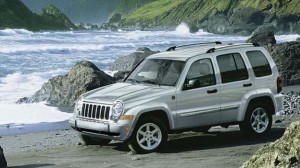Federal safety regulators are shining the spotlight on Chrysler Group in an attempt to get the company pick up the pace on the recall of 1.6 million Jeeps with fuel tank issues.
The National Highway Traffic Safety Administration (NHTSA) ordered the maker to produce more documents about the recall of 2002-2007 Jeep Libertys and 1993-1998 Jeep Grand Cherokees. The vehicles were recalled last June due to concerns that the fuel tanks may rupture during rear-end collisions.
Chrysler’s proposed fix – installing trailer hitch receivers – is taking too long to complete. According to NHTSA, the automaker took more than five months to settle on a supplier to produce the hitches and didn’t start producing the hitches until a May.
The current production rate is too slow for the agency’s liking, and it may have a point: it’ll take Chrysler seven years to complete the repair of the 1.6 million vehicles in the action. So it wants more information – in this case: documents – about how the maker plans to rectify the situation.
(Ford’s CEO Fields fares will with new $5 million pay package. For details, Click Here.)
NHTSA also noted that it had to perform its own validation testing on Chrysler’s proposed solution to the problem because the automaker’s data was “insufficient.” The agency had to perform the rear-end collision test eight times to validate the results.
(Click Here for details on the new 707-hp Dodge Challenger SRT Hellcat.)
Chrysler said it “welcomes” NHTSA’s findings and validation of Chrysler’s proposed remedy to the rear-end crash issue, USA Today reported, adding Chrysler said parts suppliers are working three shifts a day, six days a week, to fulfill its orders for the trailer hitch receivers.
(To see more about GM reuniting stolen Corvette with GM retiree, Click Here.)
“This reflects Chrysler Group’s longstanding position – supported in the public record by real-world data – that the vehicles are not defective. They are among the safest in their peer groups and met or exceeded the standards in effect at time they were first sold,” Chrysler said.

